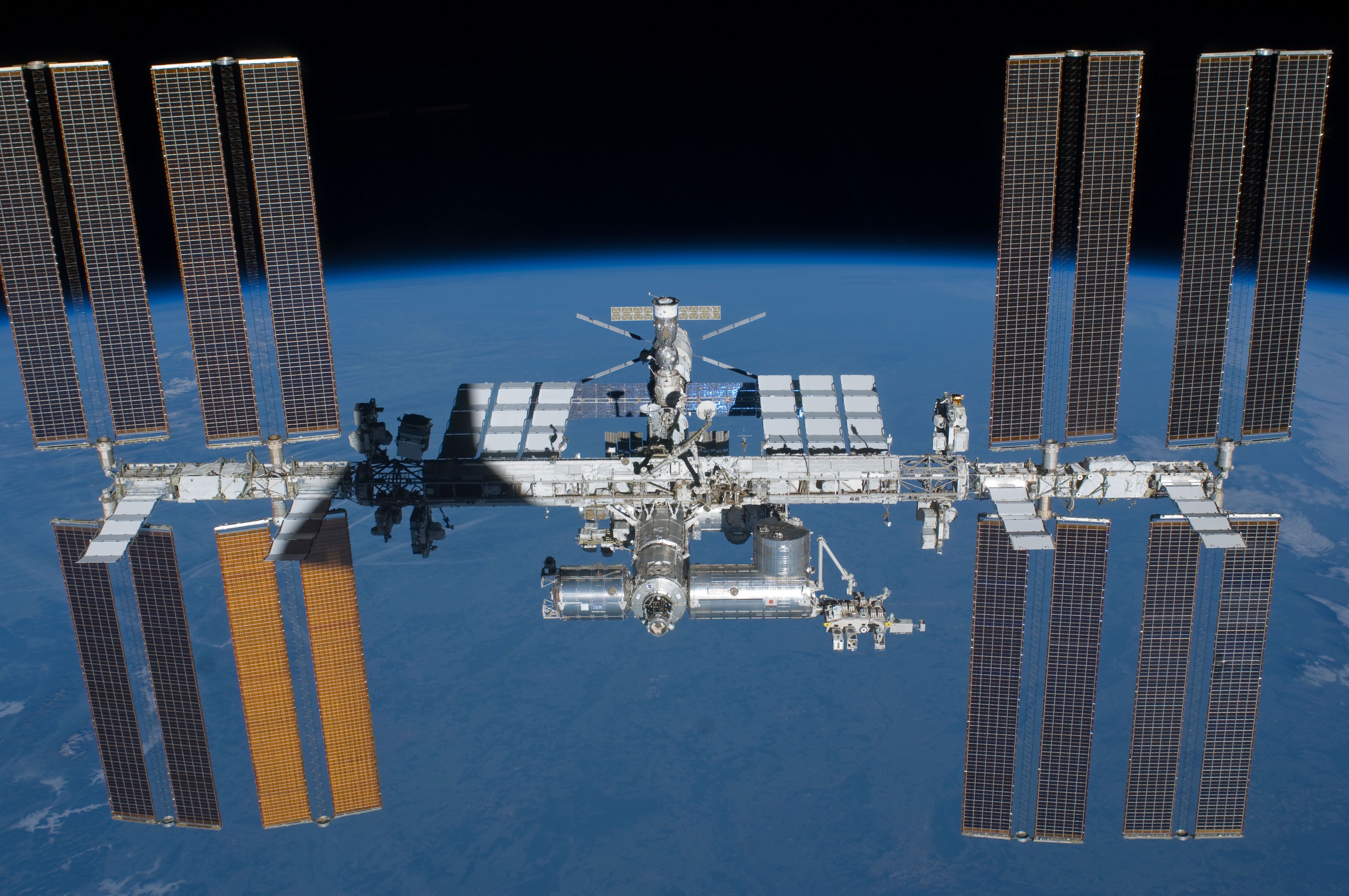The International Space Station is a habitable man-made satellite in a low orbit above the Earth. It is the largest man-made body in orbit and can be seen with the naked eye. It is made of pressurized modules, external trusses, solar arrays and other components. The first components were launched in 1998 aboard Russian Proton and Soyuz rockets and United States Space Shuttles.
The orbit of the ISS varies from two hundred to two hundred and seventy miles above the Earth. Its orbit is periodically raised by the engines of the Zvezda module or a docked spacecraft. The ISS travels around the Earth about fifteen times a day.
The ISS "serves as a microgravity and space environment research laboratory in which crew members conduct experiments in biology, human biology, physics, astronomy, meteorology, and other fields." Components for spacecraft and equipment are being tested there for flights to the Moon and Mars.
People have been living aboard the ISS continuously for sixteen and a half years. It holds the record for the most inhabited days of any space station. It has been visited by crews from seventeen different nations. Russian, U.S., and Japanese spacecraft have been used to ferry crew and supplies to the ISS.
Back in 2014, the U.S. Congress decided that they would set a deadline of 2014 to decide whether or not they would keep voting to fund the ISS. Currently, the funds allocated for the ISS consume about half of the money that Congress provides to NASA for human space exploration.
The new U.S. president has expressed interest in sending manned expeditions to Mars and/or an asteroid. Without substantial increases in its budget, NASA cannot accomplish those mission while several billion dollars each year is being provided to maintain the ISS.
The House Committee on Science, Space, and Technology is the committee in Congress that draws up the budget for NASA. That committee has been periodically holding hearings about what to do with the ISS. It could be sold, it could be maintained, or it could be allowed to crash into the Pacific.
Some supporters of NASA believe that the budget should be dedicated to exploration like missions to Mars and Asteroids. For those people, maintaining the ISS is a low priority. On the other hand, the ISS is an excellent platform for research on space technology as mentioned above. A great deal of important research and development for exploratory missions can be carried out on the ISS. The microgravity environment of the ISS which is exposed to a great deal of ambient radiation has already been very useful in learning about the effects of the harsh environment of space on equipment, plants, animals and human beings.
The ISS was only completed a few years ago when the final modules were shipped up and attached. It still has many potential years of use as a research and development platform. It could also be privatized and serve as a platform for space manufacture or even a luxury hotel in space.
Congress still has seven years to make a decision about the fate of the ISS. The U.S. Congress should move aggressively to collect pertinent information and testimony from experts and come to a final decision about the ISS well before the 2024 deadline arrives.
International Space Station:
